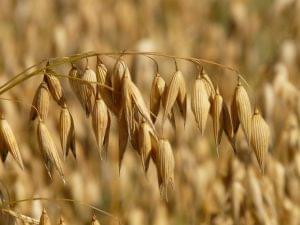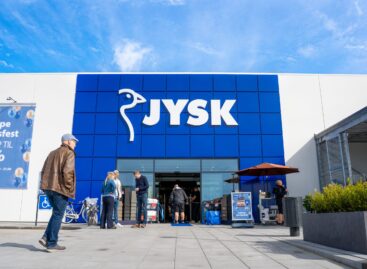A Hungarian research group has developed a gene editing process for producing new grain varieties
The cereal grain research working group of the National Laboratory for Agricultural Biotechnology and Precision Breeding for Food Security has developed a gene editing process for producing economically useful grain varieties, the institution told MTI on Monday.
 The prerequisite for improving the quantity and quality of food is the production of grain varieties with high yield and resistance to pathogens – they justified the research focusing on modern breeding processes, which also includes patenting the new methods and their practical application.
The prerequisite for improving the quantity and quality of food is the production of grain varieties with high yield and resistance to pathogens – they justified the research focusing on modern breeding processes, which also includes patenting the new methods and their practical application.
As a result of the development, the variety candidate announced for state recognition is resistant to the network leaf spot fungal disease, which is spreading strongly in Europe. The introduction of the resistant barley variety could slow down the spread of the pathogen and mitigate the resulting damage – they explained in the statement.
Agricultural biotechnology and precision breeding for food security was established by a consortium of the HUN-REN Agricultural Research Center, the HUN-REN Szeged Biological Research Center and the Hungarian University of Agricultural and Life Sciences (MATE).
Their research promotes the production of healthy food and proposes solutions to mitigate the effects of the climate crisis and reduce environmental pollution in the “One Health” approach – the unity of plant, animal, human and environmental health. Their project, which will end in 2026, received a non-refundable grant of HUF 2.431 billion in the National Laboratories Establishment and Complex Development tender. The contracted amount provides 100 percent support for the development – according to the information published on the MATE website.
Related news
Cheese-cocoa-peach jam: these are the most popular cookie flavors
🎧 Hallgasd a cikket: Lejátszás Szünet Folytatás Leállítás Nyelv: Auto…
Read more >Hungarians don’t replace their furniture – JYSK research reveals a conscious, long-term planning market
🎧 Hallgasd a cikket: Lejátszás Szünet Folytatás Leállítás Nyelv: Auto…
Read more >We will protect the safety of Hungarian food by all means.
🎧 Hallgasd a cikket: Lejátszás Szünet Folytatás Leállítás Nyelv: Auto…
Read more >Related news
A stable compass in the Hungarian FMCG sector for 20 years
🎧 Hallgasd a cikket: Lejátszás Szünet Folytatás Leállítás Nyelv: Auto…
Read more >Half of employees do not support salary transparency
🎧 Hallgasd a cikket: Lejátszás Szünet Folytatás Leállítás Nyelv: Auto…
Read more >There is a slice for everyone
🎧 Hallgasd a cikket: Lejátszás Szünet Folytatás Leállítás Nyelv: Auto…
Read more >








